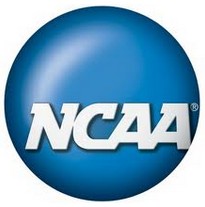INDIANAPOLIS, INDIANA (September 16, 2020) – The NCAA Playing Rules Oversight Panel approved baseball rules changes and the NCAA Baseball Rules Committee clarified visual bat inspection protocols since the panel delayed implementation of regular-season bat barrel compression testing in Divisions II and III due to budget constraints from the COVID-19 pandemic.
The protocols are:
- Ensure the bat model appears on the approved bat list.
- Ensure the bat model does not appear on the NCAA noncompliant bat list.
- Ensure the bat does not have flat spots.
- Ensure the bat does not have an audible rattle.
- Ensure the bat does not have cracks, attachments, or a loose knob or end caps.
Experimental Communication Rule
The NCAA Baseball Rules Committee approved extending the current experimental rule that allows for one-way communication from the dugout to the field to signal in pitches. Teams may be approved to use communication devices such as a wrist device, in-ear device or digital display board in or on top of the dugout.
Conferences must request to implement the experimental rule through the NCAA Baseball Rules Committee by Jan. 1.
Windup/Set Position
Rules were approved to clarify when pitchers are pitching out of a windup or set/stretch position.
NCAA Baseball Rules Committee members felt this interpretation needed to be made to help umpires, base runners and coaches discern when a pitcher is in a windup or set/stretch position due to the unique starting points on the mound that have entered the game in recent years.
The rule is effective for the 2020-21 academic year.
The pitcher will be in the windup when facing the batter while his pivot foot is in contact with the pitcher’s plate and the other foot is free.
A pitcher will be considered in the set/stretch position when he stands facing the batter with his pivot foot in contact with the pitcher’s plate and his other foot in front of the pitcher’s plate while holding the ball in both hands in front of his body and coming to a complete stop.
With a runner or runners on base, a pitcher will be presumed to be pitching from the set/stretch if he stands with his pivot foot in contact with and parallel to the pitcher’s plate and his other foot in front of the pitcher’s plate.
However, in the scenario above, a pitcher can notify the home plate umpire that he is pitching out of a windup position before the beginning of an at-bat. The pitcher will be allowed to inform the umpire he is changing to pitch out of a windup during an at-bat when:
- A substitution is made by the offensive team.
- One or more base runners advance during the at-bat.
Concussion evaluations
The panel also approved allowing any player who is removed for a concussion evaluation to return to the game if cleared by medical personnel.
This proposal came from the Committee on Competitive Safeguards and Medical Aspects of Sports.
The player undergoing concussion evaluation, whether a starter or a substitute, can be replaced by any eligible player who has not participated in the game.
If the injured player is cleared to resume participation, he may resume his lineup spot only. A player may reenter the game only one time. The temporary replacement player may again participate in the game as a substitute in the same lineup spot only.
If a temporary replacement player is substituted for (pinch runner, pinch hitter or defensive substitution), that player would not be allowed to reenter the game.
If a temporary replacement player is removed for a concussion evaluation, that player may reenter only in that position in the lineup.
If a team has no remaining eligible players, a starter or substitute who has previously participated in the game could replace the injured player.
Coaches challenges
If a coach initiates a video-review challenge and the original call is overturned, the coach will keep the challenge. Previously, coaches were allowed only two video-review challenges, regardless of whether the original call was overturned.
Designated hitter
The NCAA designated hitter rule would be simplified and more closely resemble the rule used in professional baseball. A starting pitcher can be co-listed in the lineup as the designated hitter.
Penalty for leaving dugout, bullpen during an altercation
Panel members approved a rule that any team personnel, besides the coaching staff, who leave the dugout or bullpen at the time of an altercation will be ejected and must serve a one-game suspension.
The rationale for the proposal is to prevent further escalations or unsportsmanlike conduct.
Foreign substance
If any pitcher or defensive player is caught putting a foreign substance on the ball, the pitcher will be ejected immediately. Previously, a player caught adding a foreign substance was warned first and ejected on any subsequent violations.





 Back
to News
Back
to News